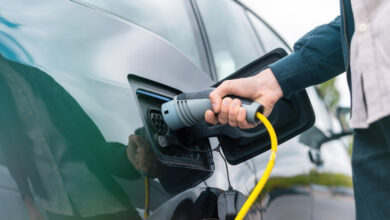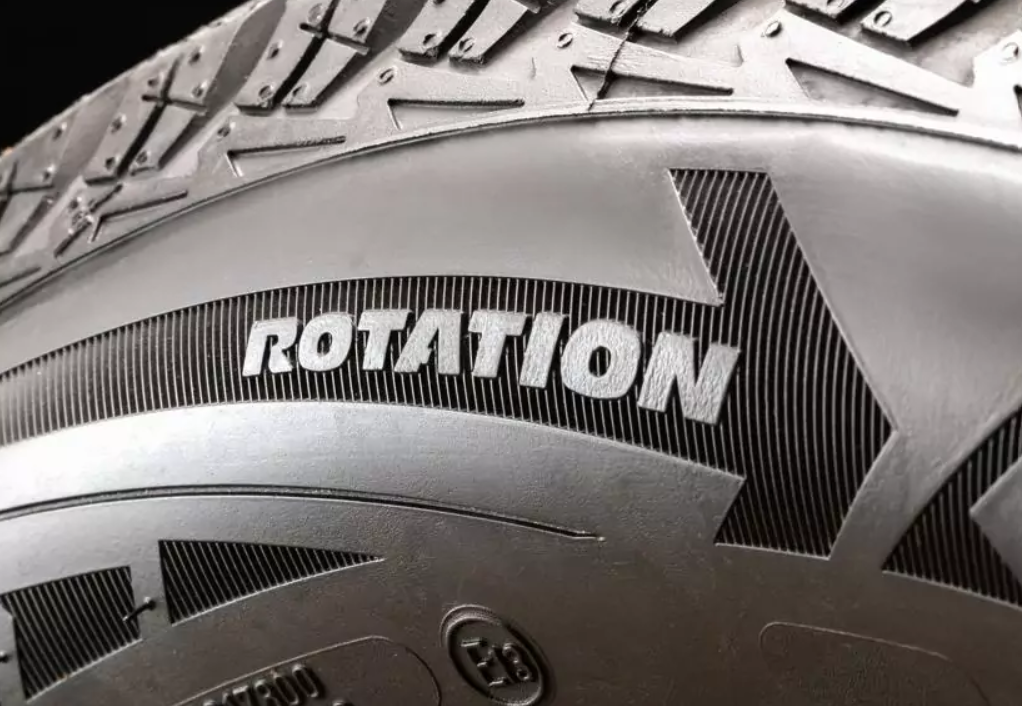Hydrogen cars: EVs that do not need charging
When people think of electric cars, people think of hybrids or the ones with charging ports. But there is another type of electric car: hydrogen cars. Also known as fuel cell electric vehicles (FCEV), hydrogen cars burn hydrogen to generate electricity which powers the car. So how does it work and does it stack up against other cars like hybrids?
Where does hydrogen come from?
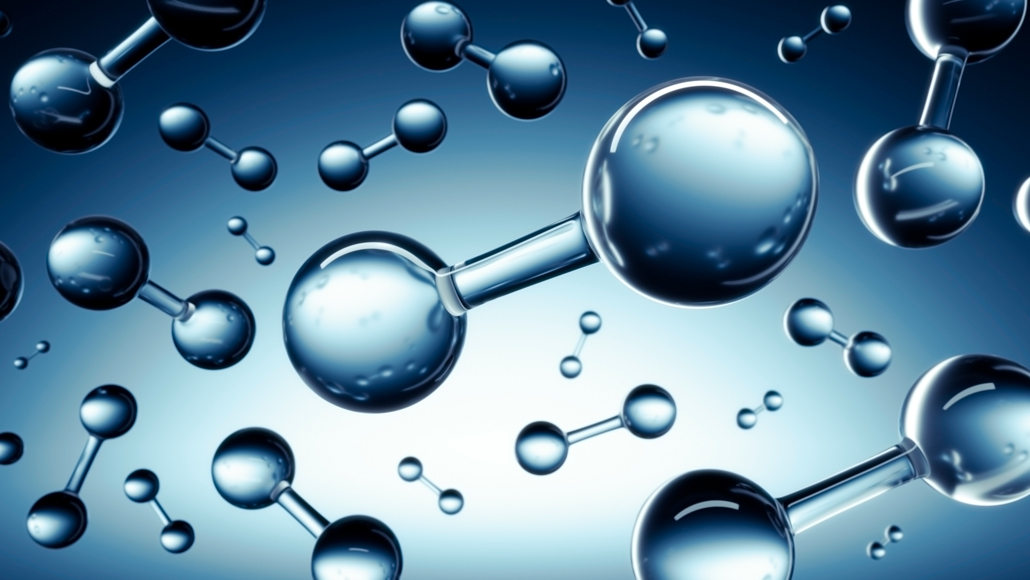
Hydrogen is everywhere. It is in petrol, methane, and even water. Remember the electrolysis science experiment? A current is run through the water in a process called electrolysis. This splits the water into hydrogen and oxygen. A myriad of industrial processes also produce hydrogen as a by-product. In short, we have no shortage of hydrogen gas which can be created at will.
This hydrogen is pumped into a high-pressure tank, and ventures into a fuel cell. There, the hydrogen splits into protons and electrons, and while the protons turn into harmless water, the electrons power the car. The harmless water is then expelled at the back of the car. This makes hydrogen-powered cars much cleaner than conventional petrol cars, if more awkward given the dripping.
Rapid refuelling
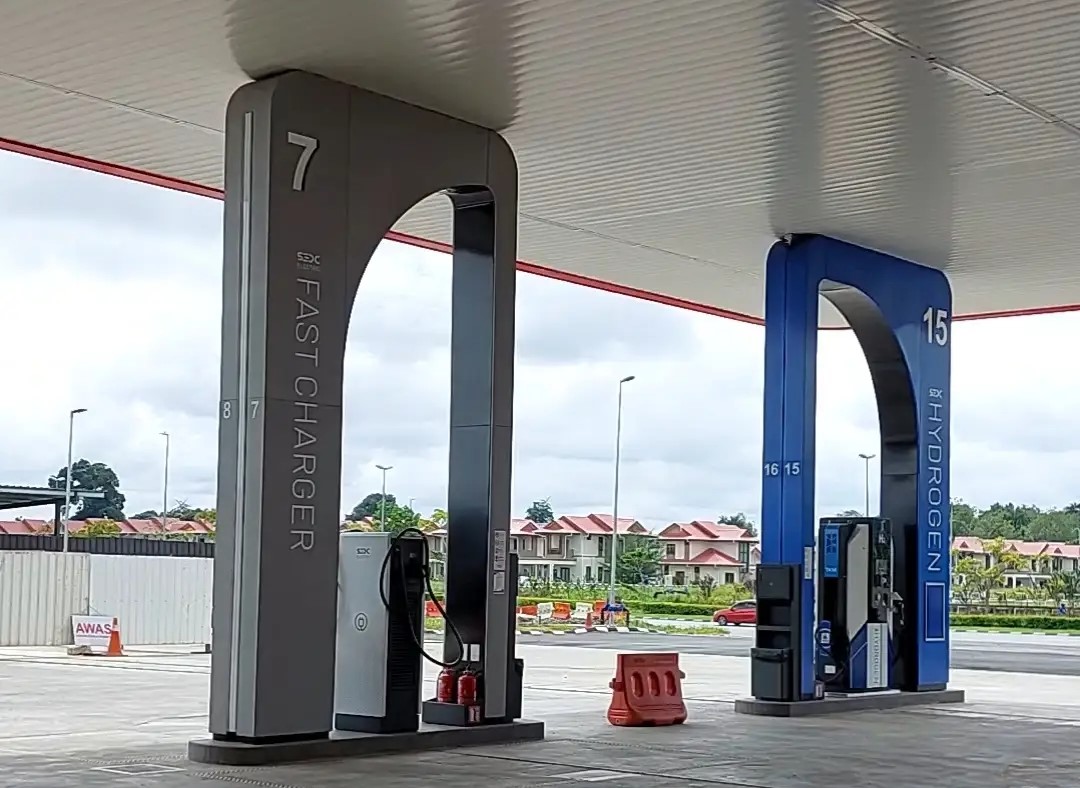
If you upgrade to a hydrogen car from a petrol car, not much changes in your day to day. You will still need to refuel your car as usual, just with hydrogen instead of petrol or another flavour of hydrocarbon. And exactly like a petrol car, refuelling will only take 5 minutes! Simply insert the nozzle, let the hydrogen fill up your tank, and you’re good to go!
Easy storage
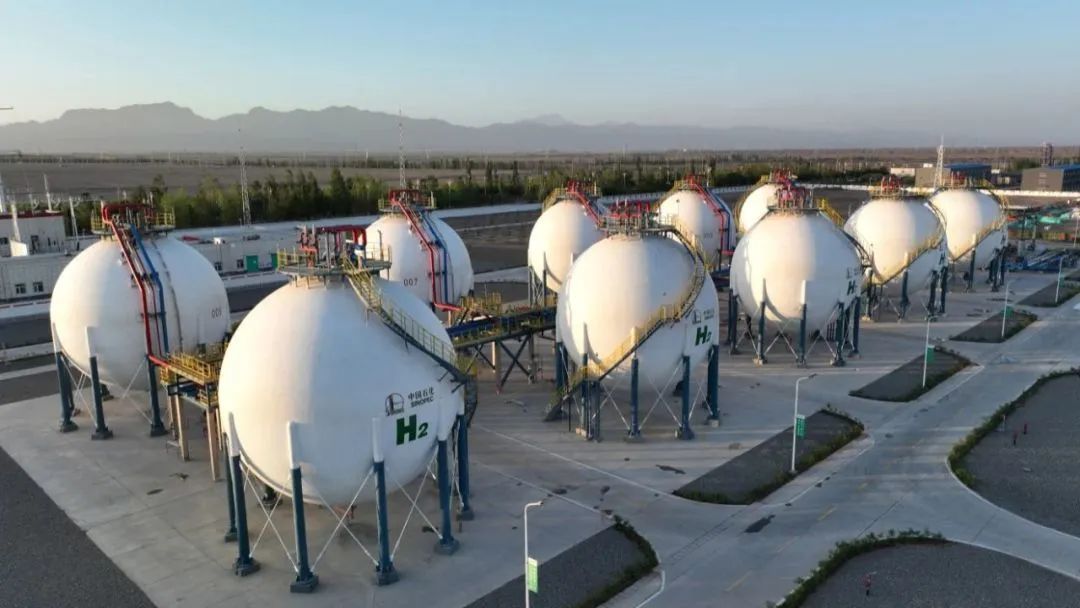
Much like petrol, diesel, or natural gas, hydrogen can be stored in tanks and transported by pipelines or fuel trucks. This reduces the need for building new infrastructure to cater to hydrogen cars as petrol stations can be refitted to provide hydrogen fuel instead of petrol. This could convert nearly all our petrol stations into hydrogen stations without having to build charging stations.
Electricity, on the other hand, can only be stored in expensive batteries once generated. This can be a problem as our country relies on green electricity more and more which is often dependent on weather. It is not inconceivable for electricity availability to fluctuate based on production in the future.
Massive range

Hydrogen cars have an impressive range. Toyota’s Mirai for example has a range of 640km with the newest generation having a range of 850km with three hydrogen tanks! The combination of hydrogen fuel and regenerative braking used to recharge the comparatively small battery results in great range. Theoretically, you could drive from Kangar, Perlis to Johor Bahru with 25km left in the tank!
This is much much further than even the fuel-saving Perodua Myvi‘s 550km much less the 450km of the BYD Atto 3! This combined with quick refuelling makes range anxiety non-existent in hydrogen car owners.
Read more: How BYD will change the automotive market in Malaysia
Possibly greener
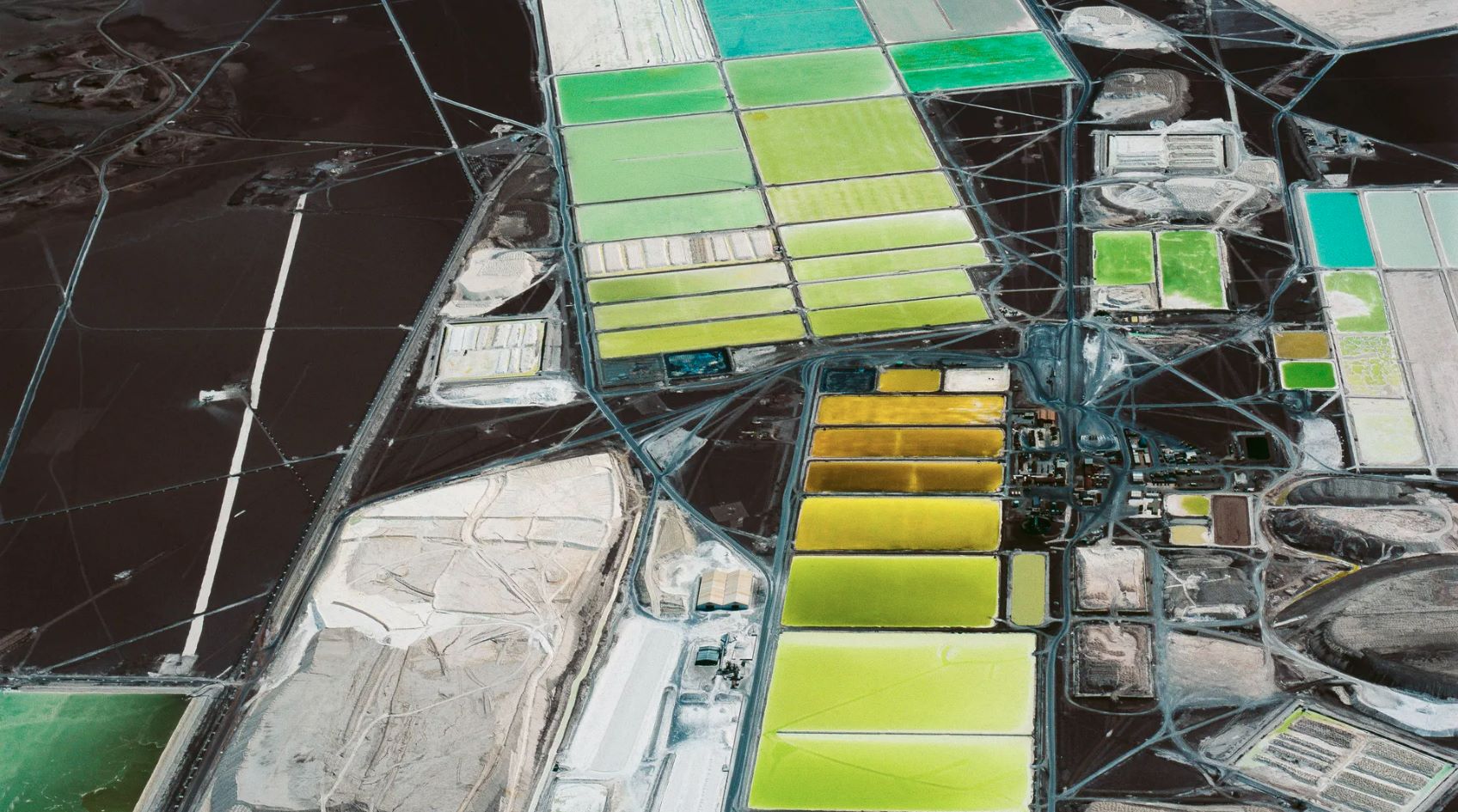
Electric cars use massive lithium-ion batteries. Lithium is only obtained via strip mining which causes massive damage to the environment, reshaping the landscape and contaminating the soil and water nearby. Even though lithium mining produces less carbon than mining fossil fuels, the sheer size of the batteries in a plug-in EV means more lithium and therefore more destruction is needed to build them, unlike hydrogen cars which use a comparatively smaller battery.
Compare the size of the EV’s battery with the hydrogen car’s battery.
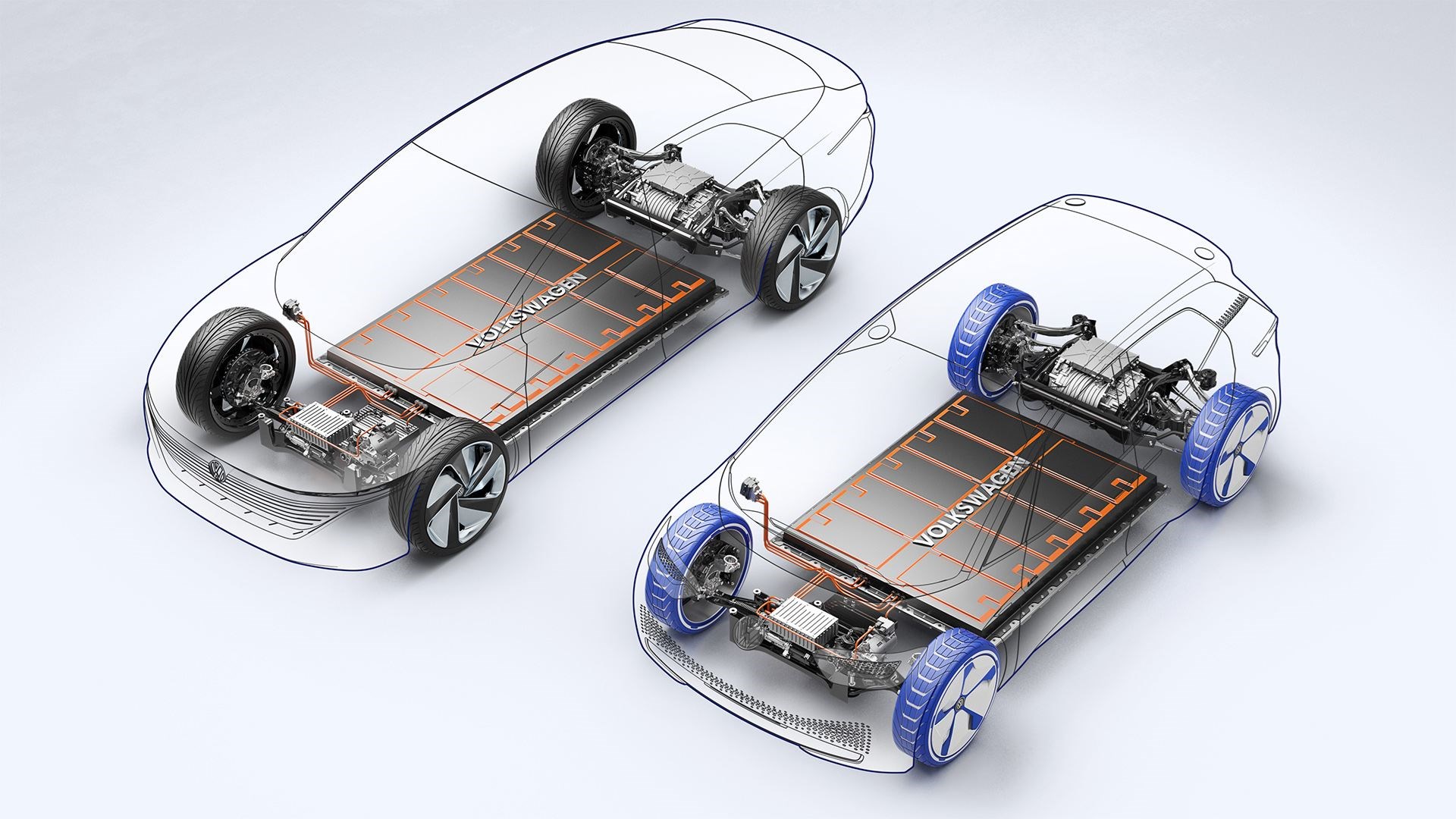
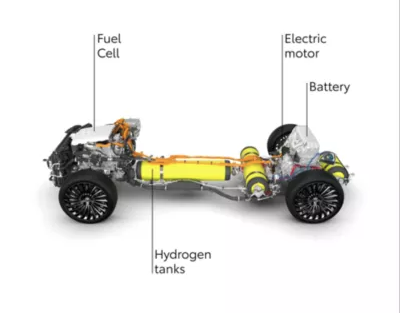
If hydrogen cars are so great, why are plug-in EVs more common? Well, as great as they are, there are several large drawbacks.
Greater cost
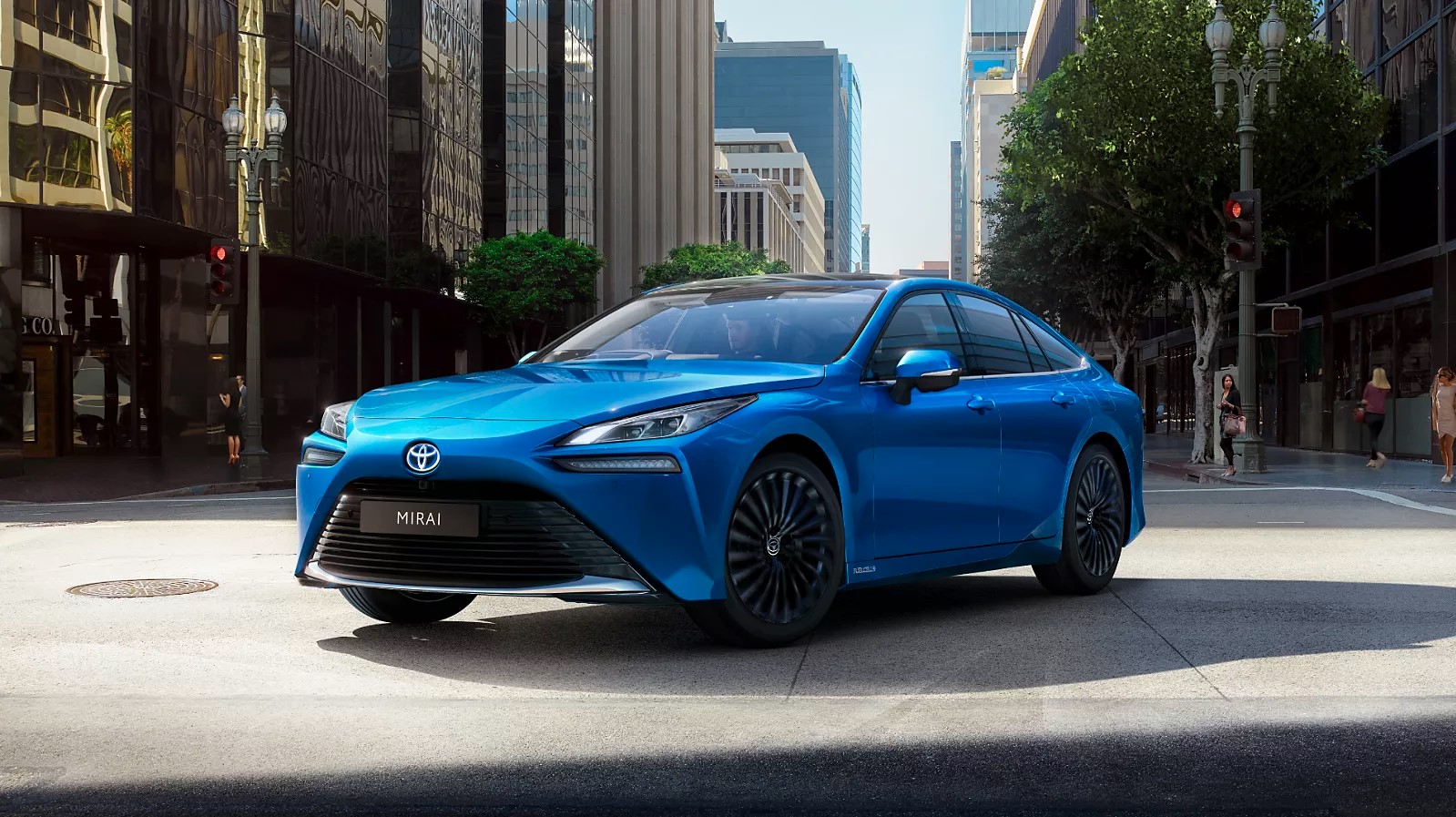
Hydrogen cars cost a lot more than electric cars due to low demand, production numbers and the greater number of moving parts that need to be built and assembled. The Toyota Mirai for example, is a sedan priced at RM277k. Compare this to the BYD Seal priced at RM179,800 or the Tesla Model 3 at RM199,000. Both electric cars are nearly RM100,000 cheaper than the Toyota Mirai.
Explosive potential
Like all fuels, hydrogen can catch fire. Being lighter than air, this colourless and odourless gas can quickly escape from a storage tank damaged in a car accident. Although odourants added to stored hydrogen increase the likelihood of a leak being detected, it requires a person being in the vicinity to smell it and correctly identify it as a hydrogen gas leak.
Once a spark is introduced, however, hydrogen burns nearly invisibly. Hydrogen fires also do not release much heat beyond the flame, so you have to be practically touching the flame to feel any heat. So you can be right next to a hydrogen flame and have no idea it is there.
Limited network
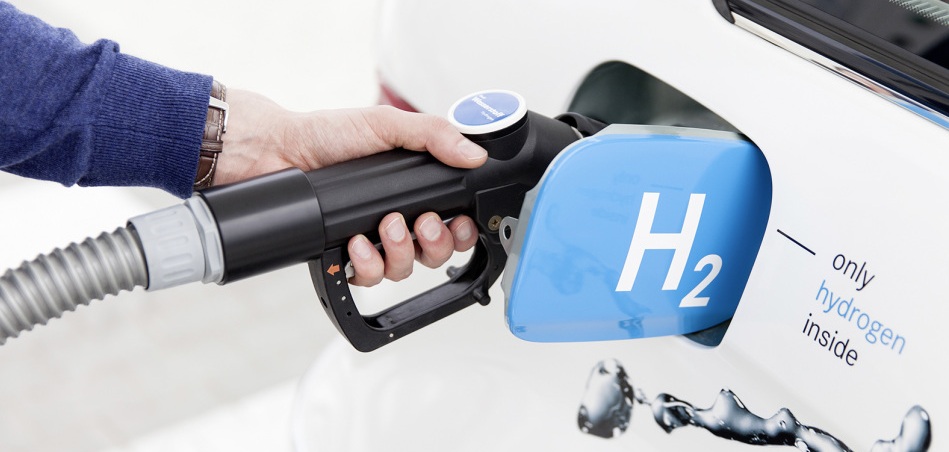
Like any vehicle, hydrogen cars are limited by the network of refuelling stations available. Given the scarcity of hydrogen stations right now, a big fat 0 in Peninsular Malaysia, it would not be wise to buy hydrogen cars. Compare this to electric cars which can be recharged so long as there is electricity and a charger, like homes. This capability makes the long recharging times less significant as it can be charged when not being used.
These factors combined make people hesitant to buy hydrogen cars.
Are plug-in EVs a transitionary technology?
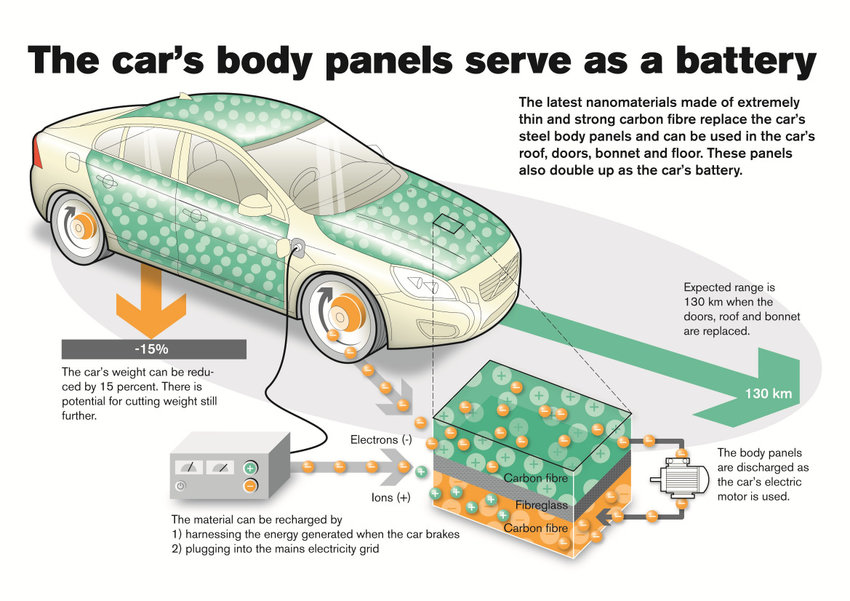
Probably not. Price, infrastructure, safety, and customer perceptions are still an issue. Therefore, it will be a long way before hydrogen cars can compete with full EV cars. Ironically hydrogen cars could end up like EVs: initially unviable but would disrupt the automotive market 20 years later.
In the meantime, battery technology continues to improve. This includes research into structural batteries which support the vehicle in addition to storing power. This would reduce the overall weight of the electric vehicle therefore increasing range. This technology could benefit both traditional EVs and hydrogen cars, but in the short term, traditional EVs would likely get a boost.
All in all, hydrogen cars are a new green technology that marries the benefits of a renewable, liquid fuel with an electric motor. However, fierce competition with the much cheaper traditional EVs and a rapidly growing EV infrastructure network means it will be a while before the masses adopt hydrogen-powered cars.
So should you buy an EV? Read our article and decide for yourself: Should you switch to an EV?
If you’re looking for a quality used car instead, check out our inventory of Carro Certified cars. Drive one home and enjoy a 1-year engine and gearbox warranty with every car!


